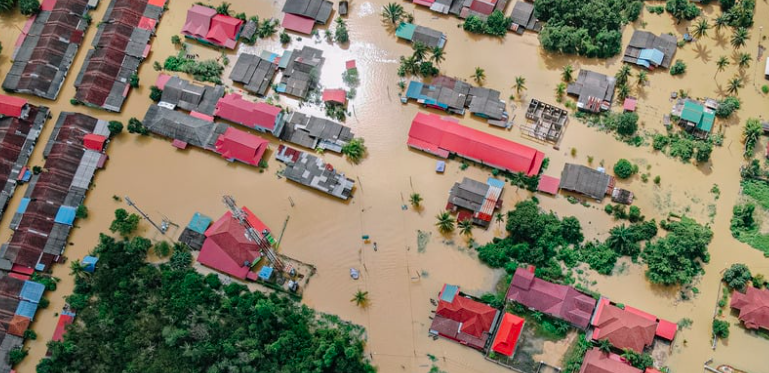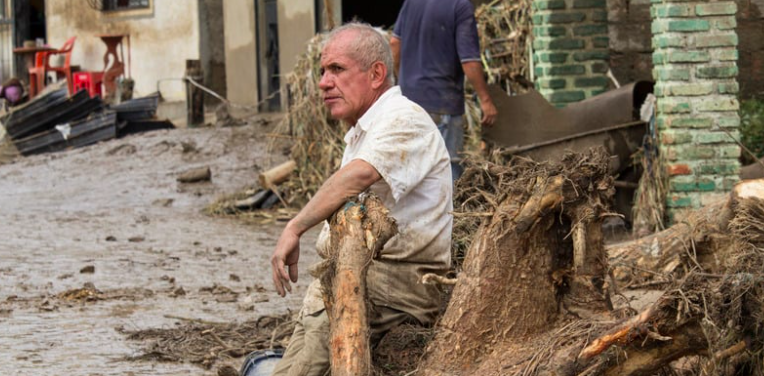The flooding events that have hit our country in recent weeks have left indelible marks, disrupting lives and straining entire communities. In the face of such disasters, it is impossible not to question the causes of these increasingly frequent and intense phenomena.
Experts agree that climate change is playing an increasingly crucial role in increasing the frequency and intensity of extreme events such as floods. Rising global temperatures, in fact, are changing water cycles, resulting in more intense and concentrated rainfall over short periods of time. This, combined with urbanization and overbuilding of the land, makes our ecosystems increasingly vulnerable.
The consequences of floods are numerous and far-reaching:
- Loss of human life: Sadly, every flood brings with it a tragic toll in terms of human life, due to drowning, trauma, and diseases related to the poor sanitary conditions that arise after the disaster. Moreover, floods can cause psychological stress and emotional trauma in those affected, with long-term repercussions on mental health ;
- Material damage: Floods cause significant damage to both public and private property. Infrastructure such as roads, bridges, water and sewage systems are destroyed or severely damaged, compromising mobility and access to essential services. Homes and businesses suffer flooding, erosion, and collapse, resulting in significant economic losses and hardship for the population ;
- Environmental impacts: The effects of floods on the environment are devastating. Water pollution, caused by the release of chemicals and debris, compromises the quality of water resources and endangers aquatic life. Loss of biodiversity is another serious consequence, as floods can destroy natural habitats and cause the death of numerous animal and plant species. Soil degradation, caused by erosion and sediment deposition, compromises the fertility of agricultural land and increases the risk of landslides ;
- Social and economic crisis: Communities affected by floods often face a long and difficult recovery, with repercussions on social and economic life. The loss of homes and livelihoods can lead to the displacement of people and the fragmentation of the social fabric. Furthermore, floods can cause an increase in unemployment, poverty, and food insecurity. Economic recovery requires significant investment and can take years.
What can we do? Faced with this emergency, it is crucial to act on multiple fronts:
- Mitigate climate change: Reducing greenhouse gas emissions is essential to slow down global warming and mitigate the effects of climate change ;
- Adapt to new scenarios: It is necessary to invest in more resilient infrastructure, early warning systems, and effective emergency management plans;
- Protect the land: Protecting the land through sustainable agricultural practices and reforestation can help reduce the risk of hydrogeological hazards ;
- Raise awareness: It is essential to raise public awareness of the risks associated with climate change and promote more sustainable behaviors.
Floods, increasingly frequent and intense events, are a clear sign that climate change is an undeniable reality. These disasters not only put a strain on affected communities but also pose a real threat to biodiversity and ecosystems.
However, faced with this global challenge, we cannot afford to remain idle. It is essential to act decisively and consistently to build a more sustainable and resilient future. Every individual, community, and institution has a crucial role to play. From reducing greenhouse gas emissions to adopting sustainable agricultural practices, protecting wetlands, and reforestation, every action, no matter how small, contributes to mitigating the effects of climate change and protecting our planet. Investing in green infrastructure, developing early warning systems, and promoting a culture of prevention are equally essential to reduce the vulnerability of territories to floods and other extreme events.
Only through global collaboration and shared commitment can we address this complex challenge and build a better future for generations to come.

